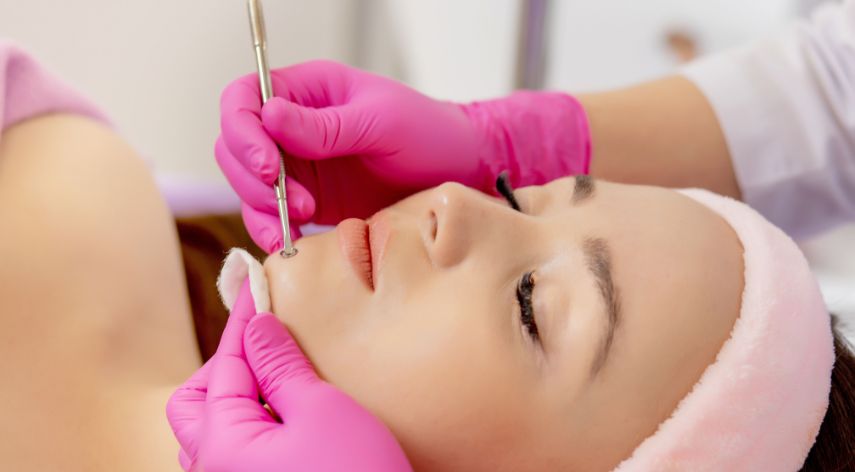The Truth About Acne Treatments

Have you ever wondered why some people never seem to get acne, while others are constantly struggling with breakouts? The truth is, there is no one-size-fits-all answer to this question.
In this article, we’ll explore some of the most common acne treatments and dispel some of the myths surrounding them. We’ll also discuss what acne actually is and offer some tips for preventing breakouts. By the end, you should have a better understanding of which acne treatment is right for you.
So, first things first, what is acne? Acne is a skin condition that occurs when your hair follicles become clogged with oil and dead skin cells. This can happen for a variety of reasons, including hormones, diet, and stress. When the follicle becomes blocked, it provides the perfect breeding ground for bacteria, which can lead to inflammation and breakouts.
Table of Contents
ToggleWhat are the most common acne treatments?
There are a variety of acne treatments available, both over-the-counter and prescription. The most common acne treatments include:
- Benzoyl peroxide– This is an over-the-counter acne treatment that works by killing bacteria and drying up excess oil. It comes in a variety of formulations, including gels, creams, and soaps. This acne treatment can be effective, but it can also cause dryness, redness, and irritation.
- Salicylic acid– This is an over-the-counter acne treatment that helps to unclog pores and prevent breakouts. It comes in a variety of formulations, including gels, creams, and pads. Like benzoyl peroxide, this acne treatment can be effective, but it can also cause dryness, redness, and irritation.
- Retinoids– This is a class of medication that includes both over-the-counter treatments like retinol and prescription treatments like tretinoin. Retinoids work by increasing cell turnover, which helps to unclog pores and prevent breakouts. These acne treatments can be effective, but they can also cause dryness, redness, and irritation.
- Antibiotics– This is a class of medication that is typically prescribed by a doctor. Antibiotics work by killing bacteria and reducing inflammation. These acne treatments can be effective, but they can also cause dryness, redness, and irritation.
- Birth control pills– This is a type of medication that is prescribed by a doctor. Birth control pills work by regulating hormones, which can help to reduce acne. These acne treatments can be effective, but they can also cause side effects like weight gain, headaches, and mood swings.
Which acne treatment is right for me?
The truth is, there is no one-size-fits-all answer to this question. The best acne treatment for you will depend on a variety of factors, including your skin type, the severity of your acne, and your overall health. You may need to try a few different acne treatments before you find the one that works best for you.
If you’re struggling with acne, don’t despair. There are a variety of acne treatments available, and with the help of a dermatologist, you can find the one that’s right for you.
What are some acne myths?
There are a lot of myths out there about acne treatments, so it’s important to separate fact from fiction. Some common acne myths include:
- Acne is caused by dirt– This is a myth. Acne is not caused by dirt, but rather by oil and dead skin cells that clog the pores.
- Acne is caused by diet– This is a myth. There is no evidence to support the claim that acne is caused by diet. However, some foods may exacerbate acne, so it’s important to eat a healthy, balanced diet.
- Acne is caused by stress– This is a myth. There is no evidence to support the claim that acne is caused by stress. However, some research suggests that stress may worsen acne.
- Acne treatments are all the same– This is a myth. There are a variety of acne treatments in Salt Lake City and elsewhere, and each one works differently. You may need to try a few different acne treatments before you find the one that works best for you.
- Acne will go away on its own– This is a myth. Acne is a chronic condition that requires treatment. Without treatment, acne can lead to scarring.
If you’re struggling with acne, don’t believe the myths. There are a variety of acne treatments available, and with the help of a dermatologist, you can find the one that’s right for you.
Alfred Williams, a distinguished business writer, navigates the corporate landscape with finesse. His articles offer invaluable insights into the dynamic world of business. Alfred's expertise shines, providing readers with a trustworthy guide through the complexities of modern commerce.
Recommended For You
Spread the loveArtificial intelligence is no longer a concept on the fringe of productivity. You now have tools that learn
Spread the loveYou’re no longer just building apps that run in the cloud. You’re building systems that think, respond, and
Spread the loveThe name Broderick Bevineau makes you think of new ideas and starting your own business. Bevineau has made


